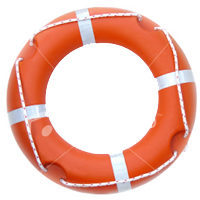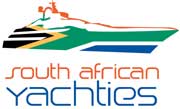Enquiry
ENTRY - LEVEL COURSES
ENTRY - LEVEL COURSES: Training for Deckhands and Interior Crew
These courses are the beginner’s introduction to the world of super-yachts. We believe that if you intend working on these boats, it’s quite a good idea to know something about them beforehand.
People who have some idea of maritime etiquette and customs as well as basic skills and time on the water will have a far better chance of landing their first job on the bottom rung of the ladder.
There are also non-negotiable statutory requirements for paid crew of all vessels.
YACHT HAND - Only available in Cape Town
This course serves as an introduction to the wonderful world of sailing. Yacht Hand is only available in Cape Town, extending the 4 week course to 5 weeks.
This course comprises of both theory and practical components. candidates will learn everything from basic yachting terminology and phrases through to collision regulations (rules of the road), and basic sail-boat handling.
Each student will have the opportunity to be in command of a sailing vessel at times during the course, as well as be responsible for the handling thereof.
This course lays down the foundation for the weeks which follow, and highlights the importance of the procedures and systems which are required aboard vessels, irrespective of size or type.
The sailing takes place in and around the beautiful bay of Hout Bay in Cape Town.
WEEK ONE
Both the Deck and Interior groups kick off with ELEMENTARY SEAMANSHIP.
This module sets out to lay the foundation for your future career with an introduction to the maritime world, its customs, etiquette and unique language as well as the basic skills needed to be able to make yourself useful on board. There’s no place on a yacht for crew members who are passengers.
This course is mostly practical and topics covered include:
- Knots, bends and hitches
- Rope work
- Parts of a vessel
- Nautical terminology
- Handling of docking lines
- Introduction to Collision Regulations
- Crew drills
- Helming and basic boat handling
- Tender drills
- Simple weather forecasting
- Anchoring
WEEK TWO
The deck and interior (stew) groups then split for the MCA YACHT RATING and INTERIOR CREW TRAINING modules respectively.
Yacht Rating
The Maritime and Coastguard Agency (MCA) is the British government department responsible for regulating the maritime affairs of the UK. As such, the MCA is very important in the yachting world because the vast majority of vessels are registered under the UK flag and any mega-yacht training that is not MCA-approved should be viewed with scepticism.
The Yacht Rating Course is the lowest level of MCA-approved training and is the only MCA yachting certificate that can be issued to people with no relevant experience. Prospective employers will be assured that holders of this certificate have had approved training and are prepared to invest in preparing themselves for their future careers. They are also less likely to be fly-by-night backpackers looking to make a quick buck and then go travelling. The industry has a distinct aversion to these types.
Included in this course are:
- The magnetic compass
- Steering and helm orders
- Keeping a proper lookout and lookout duties
- Monitoring and controlling a safe watch
- Shipboard terms and definitions
- Lifesaving and firefighting equipment
- Musters and drillsIntroduction to navigation
- Common knots, bends and hitchesHandling of mooring lines
- Care, use and storage of ropes and wiresSafe operation of mooring winches, windlasses and capstans
- The importance and safe operation of watertight doors, hatches and hull openings
- The Code of Safe Working Practices
- Engine watch keeping duties
- Terms used in machinery space and the names of machinery and equipment
- Pollution prevention
Interior Crew Training
Unlike the deck and engineering departments, yacht legislation does not cover interior crew and there is no official training or certification, so each vessel essentially does its own thing. The interior department is very strictly ruled by the Chief Stew and they each have their own preferences.
However, there is common ground and this course includes the basics of:
- Mixology, bar & wine service
- Food service
- Cleaning and detailing
- Laundry
- Financial management & budgeting
- Menu planning
- Table setting & napkin folding
- Presentation of meals & garnishes
- Flower arranging, fruit baskets & cheese platters
WEEK THREE
The Deckie and Stew groups now join together again for the MCA Approved STCW Basic Safety Training module.
Without these certificates you cannot legally be employed on a vessel anywhere in the world so this is a non-negotiable statutory requirement consisting of:
- Personal Safety and Social Responsibilities (PSSR)
- Personal Survival Techniques (PST)
- Elementary First Aid (EFA)
- Fire Prevention and Firefighting (FPFF)
- Proficiency in Security Awareness (PSA)
- Certificates are issued on successful completion of each element.
WEEK FOUR
The STCW training is completed during the first two days after which the two groups again split for the final phase: RIB Master assessment and Food Safety training and assessment.
Deckhands who successfully demonstrate their practical ability and pass a written exam, will be issued the IYT Small Powerboat and RIB Master Certificate of Competency. We hasten to stress that this does not make you competent!
What it does do is give you the legal right to drive a yacht’s tender, but you’ll only be allowed to do so when you have some experience.
The assessment includes:
- Safety at sea
- VHF radio operations
- Launching & recovery
- Anchors & anchoring
- Nautical terminology
- Boat handling
- Man overboard procedures
- Ropes & rope-work
- Collision regulations
- Ship’s lights
Interior crew will do an internationally recognised e-learning course which will earn them a Food Safety Level 2 Certificate if successfully completed. This training and certification is offered under the auspices of the UK-based Highfield International organisation (www.highfieldelearning.com).
FINALE
Now the ball’s in your court!We believe that further training at this stage is futile until you have some experience. So, it’s now time to start the most incredible adventure of your life: head off to a yachting centre overseas to make your own luck, get that first job and start climbing the ladder.
We’ll look forward to hearing about your successes and seeing you again in a couple of years when you have the qualifying experience for your next step: the Master of Yachts (<200 GT) Limited Certificate of Competency.
| Price List | |
| Product Name (Product Code) | Price |
| 4 WEEK - STEWARDESS (BEG-3W-ST-001) | ZAR 22,942.00 |
| 4 WEEK - DECK HAND (BEG-4W-DH-002) | ZAR 22,942.00 |
| 5 WEEK - DECK HAND (BEG-4W-DH-002a) | Cape Town: ZAR 28,678.00 |
| RIB (Stand Alone) (BEG-3D-RB-001) | POA |
| Course Dates | |||
| Please select the Start Date when making Enquiries / Bookings | |||
| Name | Dates | Year | Course Venue |
| RIB (Stand Alone) (Durban) | 11 - 13 Aug | 2025 | Durban |
| 15 - 17 Sep | 2025 | Durban | |
| 13 - 15 Oct | 2025 | Durban | |
| 10 - 12 Nov | 2025 | Durban | |
| 8 - 10 Dec | 2025 | Durban | |
| 19 - 21 Jan | 2026 | Durban | |
| 16 - 18 Feb | 2026 | Durban | |
| 16 - 18 Mar | 2026 | Durban | |
| 13 - 15 Apr | 2026 | Durban | |
| RIB (Stand Alone) (Cape Town) | 19-23 Jan | 2026 | Cape |
| 23-27 Feb | 2026 | Cape | |
| 23-27 Mar | 2026 | Cape | |
| 4 WEEK - STEWARDESS (Durban) | 1 - 26 Sep | 2025 | Durban |
| 29 Sep - 24 Oct | 2025 | Durban | |
| 27 Oct - 21 Nov | 2025 | Durban | |
| 24 Nov - 19 Dec | 2025 | Durban | |
| 5 - 30 Jan | 2026 | Durban | |
| 2 - 27 Feb | 2026 | Durban | |
| 2 - 27 Mar | 2026 | Durban | |
| 4 WEEK - DECK HAND (Durban) | 1 - 26 Sep | 2025 | Durban |
| 29 Sep - 24 Oct | 2025 | Durban | |
| 27 Oct - 21 Nov | 2025 | Durban | |
| 24 Nov - 19 Dec | 2025 | Durban | |
| 5 - 30 Jan | 2026 | Durban | |
| 2 - 27 Feb | 2026 | Durban | |
| 2 - 27 Mar | 2026 | Durban | |
| 4 WEEK - DECK HAND (Cape Town) | 01 Sep - 26 Sep | 2025 | Cape |
| 13 Oct - 07 Nov | 2025 | Cape | |
| 24 Nov - 19 Dec | 2025 | Cape | |
| 5 WEEK - DECK HAND (Cape Town) | 25 Aug - 26 Sep | 2025 | Cape |
| 06 Oct - 07 Nov | 2025 | Cape | |
| 17 Nov - 19 Dec | 2025 | Cape | |















